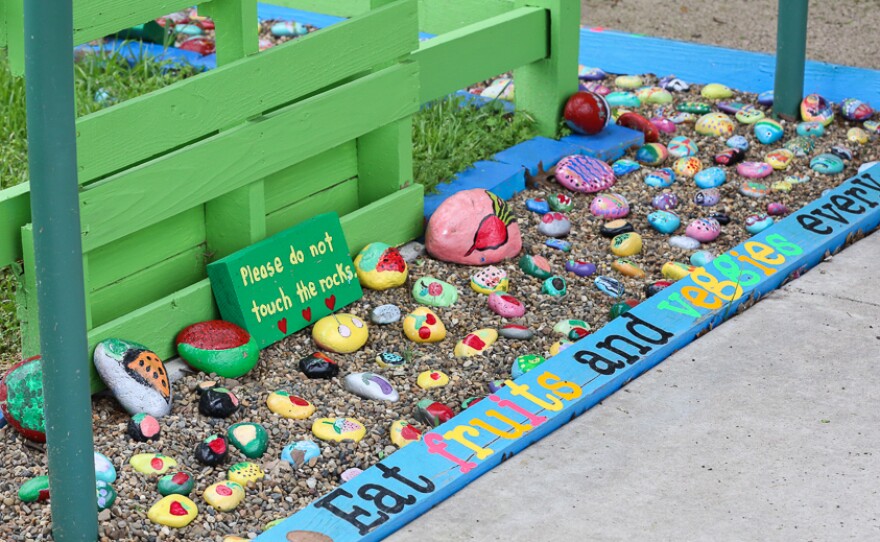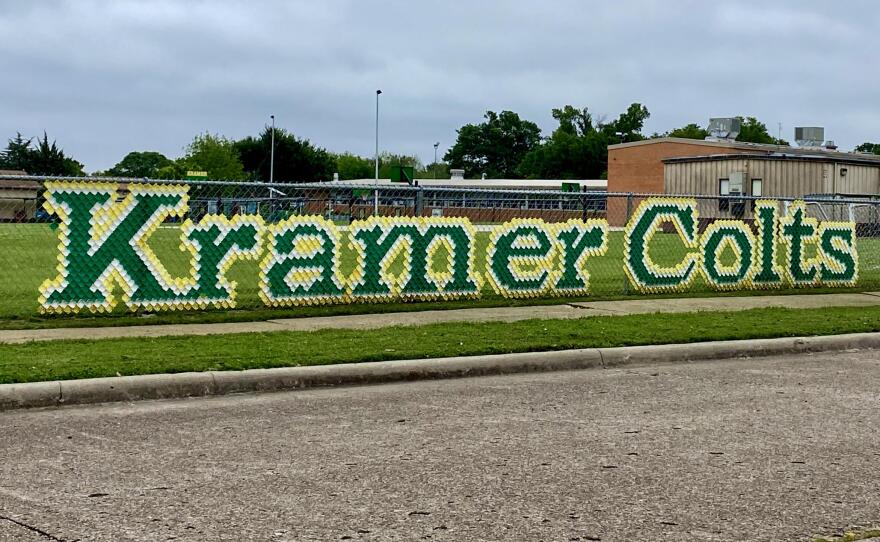COVID-19 may have forced Texas schools to cancel in-person classes for the rest of the semester, but that doesn't mean campuses are completely abandoned. Districts still have to mow lawns, blow leaves — and at some schools, tend gardens.
When we recently visited one of those school gardens in North Dallas, we met a teacher with a green thumb and a golden heart.
"I happened to be lucky enough to be here [on the morning] when the district’s maintenance people were here,” says Catherine Southwick, the garden teacher at Kramer Elementary School. "I can ask them to weed-eat some areas that they always seem to miss,” she says jokingly.
Southwick is on campus this morning to plant some fruits, veggies and herbs. She says she visits the school’s garden about three times a week, depending upon the weather. But lately, visiting the garden has been bittersweet.

"It’s a wonderful haven to come to. It’s my favorite place,” she said. Fighting away tears. "But the kids should be here. The kids love being out here.”
Southwick has been an employee of the Dallas Independent School District since 1975. For most of that time, she taught English Language Arts. "That was my passion — reading and writing. I love reading and writing,” she said.
After 36 years, she decided to call it quits. She retired in 2011. "I was on my way out,” she says. "But the principal asked to stay and rebuild our garden.” So for the last nine years, that’s what she’s done.
Southwick has applied for grants, chased down donations and worked with the school’s Parent Teacher Association to build a lush garden that has 15 raised planting beds, dozens of pots filled with blooming flowers, several fruit trees, two outdoor classroom spaces and a few interesting contraptions used for harvesting rainwater.

"I love it," she says. "I don't see myself stopping anytime soon. I think the only thing that's going to stop me from coming is if I'm physically unable to come, because I've been here, at this school, since 1991. This is like home to me."
Part of Southwick's job as the garden teacher includes educating the students about health and nutrition. She says she and the students sometimes take what they harvest from the garden and eat it in the classroom.
"The first time we had peppers growing. The kids were like, 'I didn’t know this was how peppers grow.' Just having this space for them to see which plants grow on trees or vines, it’s important," Southwick said. "It brings them closer to nature, and it helps them see what they’re learning about in science class."

It's those sorts of experiences that Southwick misses most right now. "This kinds of feels like during the summer, when the kids aren't here and I don't expect them to be here," she says. "But when I'm here during March, April and May, I miss the kids."
The spring semester, especially around this time, is actually Southwick's favorite time of the year.
"This is the best time of the year. Not just for the garden, but in general," says Southwick. "You know, you spend the first part of the year [with] the kids getting into a routine, getting to know each other, developing relationships with your students, and becoming a family. And then you get to winter break, and something happens. It's miraculous. They come back and they're mature. And in April is when you get to enjoy what you've been working toward all year."

She says it's the relationship that she's built with students that she's missing the most during the state's stay-at-home orders.
"It's the personal connections and the joy that they have when they come out here," Southwick says. "I'm sure a lot of them are really missing the garden a lot right now. So I have to keep it up for them. Gardening is 24/7, 365."
KERA News is made possible through the generosity of our members. If you find this reporting valuable, consider making a tax-deductible gift today. Thank you.
















